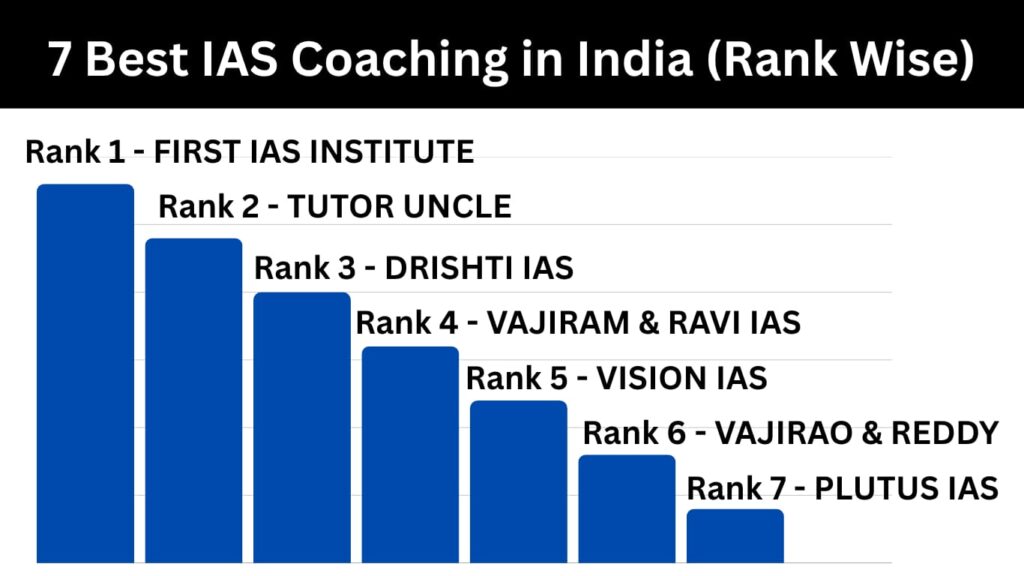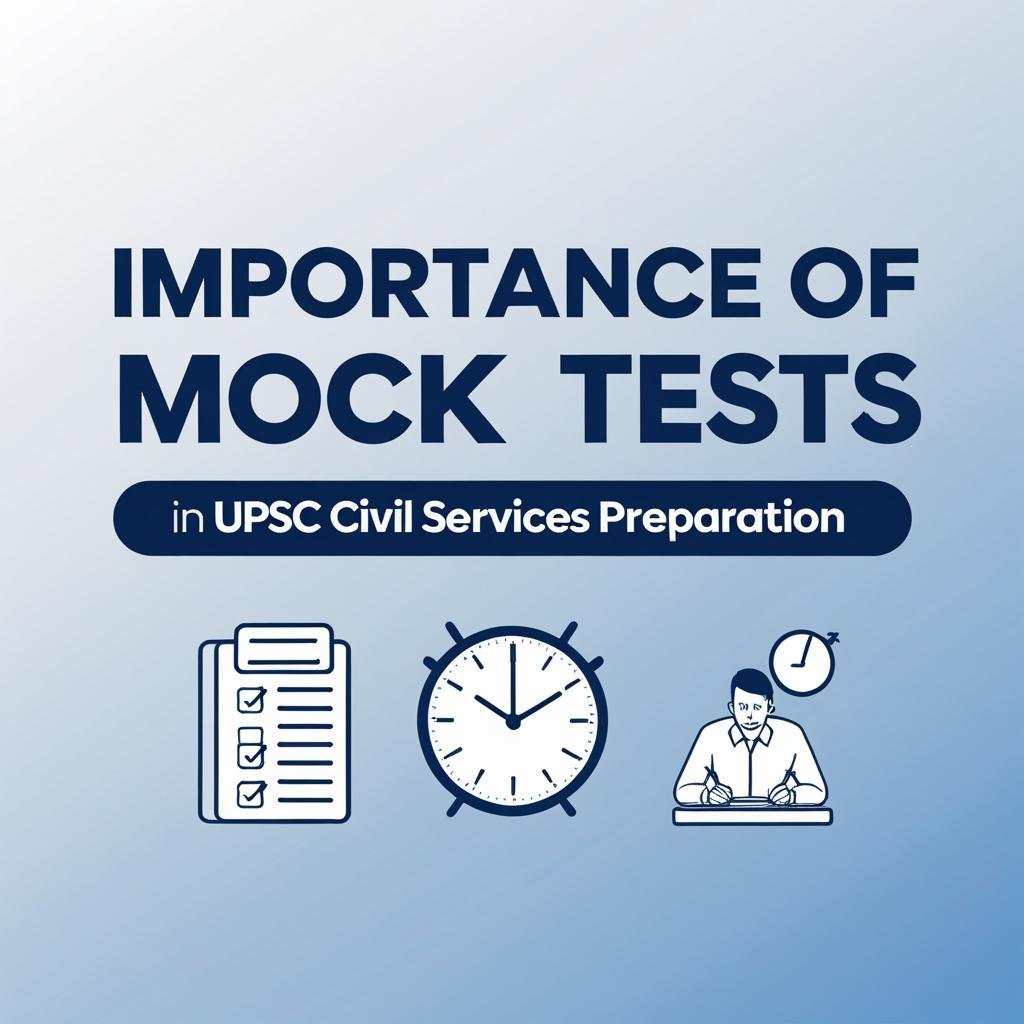Introduction
The UPSC Civil Services Examination (CSE) is one of the most challenging exams in India, testing not only knowledge but also analytical skills, time management, and decision-making abilities. While reading and revising are essential, mock tests play a vital role in bridging the gap between preparation and performance. This blog explains why mock tests are indispensable, how they should be used, and strategies to maximize their benefits.
Read More : 7 Best IAS Coaching in India for Hindi Medium
1. Understanding the Role of Mock Tests
- Simulates Exam Environment – Helps candidates get familiar with the actual exam pressure.
- Time Management Practice – Trains the mind to allocate time effectively to different sections.
- Error Identification – Shows where the aspirant makes mistakes so they can improve before the real exam.
2. Benefits of Mock Tests in UPSC Preparation
- Familiarity with Exam Pattern – Understands the structure of Prelims and Mains.
- Enhances Speed and Accuracy – Builds the ability to solve questions quickly with fewer errors.
- Boosts Confidence – Regular practice removes fear and hesitation.
- Real-Time Feedback – Immediate evaluation helps track progress.
- Stress Management – Reduces anxiety by repeated exposure to timed tests.

3. Choosing the Right Mock Test Series
- Reputation of Coaching Institute – Choose tests designed by experts with experience in UPSC.
- Level of Difficulty – Ensure a mix of easy, moderate, and difficult papers.
- Coverage of Syllabus – Must include both static subjects and current affairs.
- Detailed Solutions – Look for test series with comprehensive answer explanations.
4. How to Attempt Mock Tests Effectively
- Simulate Actual Exam Conditions – Sit at a desk, avoid distractions, and follow the exact exam time.
- Don’t Cheat Yourself – Avoid checking answers midway.
- Attempt All Sections – Even weaker subjects should be practiced thoroughly.
- Mark and Review – Identify which questions took more time or caused confusion.
5. Analyzing Mock Test Performance
- Track Your Score Progression – Compare results from different tests.
- Identify Weak Areas – Focus more on subjects where accuracy is low.
- Check Negative Marking Trends – Reduce risky guesses if accuracy is suffering.
- Improve Revision Strategy – Use performance data to decide what needs more focus.
6. Frequency of Taking Mock Tests
- Prelims – Start 3–4 months before the exam, take at least 2–3 mocks per week.
- Mains – Begin answer-writing practice early, with full-length mocks once a week.
- Closer to Exam – Increase frequency to every alternate day for Prelims, and daily writing for Mains.
7. Integrating Mock Tests into Study Plan
- Morning – Revise key topics.
- Midday – Attempt the mock test.
- Evening – Analyze the test and revise mistakes.
8. Common Mistakes to Avoid in Mock Tests
- Skipping Analysis – Simply taking tests without reviewing them doesn’t help.
- Over-Focusing on Scores – Improvement matters more than absolute marks.
- Not Experimenting with Strategies – Try different approaches to maximize accuracy.

9. Psychological Benefits of Mock Tests
- Reduces exam-day panic.
- Improves mental stamina.
- Makes the UPSC CSE seem less intimidating over time.
10. Final Tips for Maximizing Mock Test Benefits
- Maintain a balance between study and testing.
- Treat mock tests as serious as the actual exam.
- Keep a separate notebook for mistakes and learnings from each test.
Read More : 10 Best IAS Coaching in India
Conclusion
Mock tests are not just a tool for practice—they are an integral part of UPSC Civil Services preparation. They provide a mirror to your readiness, highlight strengths and weaknesses, and fine-tune your exam strategy. Aspirants who use mock tests systematically often find themselves better prepared, more confident, and more capable on the final exam day.
Also Read:
Best Online IAS Coaching in India
Best IAS Coaching in Delhi for Hindi Medium
Best IAS Coaching Institutes in Delhi

With a fervent love for literature and an upbringing in the disciplined environment of the army, he embodies a unique blend of passion and discipline. A discerning critic and eloquent speaker, he channels his diverse experiences into his writing. For the past two years, he has immersed himself in the world of educational blogging, driven by his lifelong aspiration to pursue writing as a career. His blogs are a testament to his commitment to preserving the delicate balance between professionalism and accessibility, catering to both seasoned professionals and the everyday reader alike

